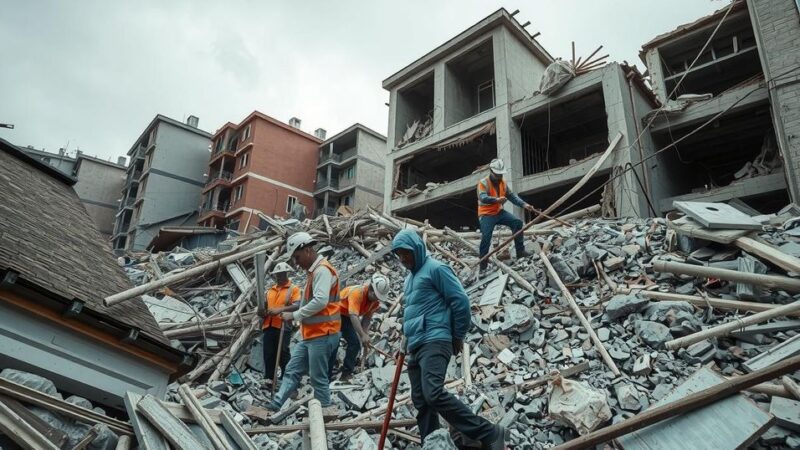Clean water access in rural Malawi has improved significantly with a solar-powered system funded by CERF. This initiative supports local health centers and eases daily burdens on women in drought-stricken areas. Amid a declared State of Disaster, the United Nations’ funding addresses critical needs for millions facing food insecurity and health risks.
The introduction of a solar-powered water system in Liwonde, Malawi, has transformed access to clean water for the local community, as evidenced by Dyman Saidi, the water system’s chairperson. Previously, residents had to source unsafe water from the Masanje river, but now the health center benefits from a reliable supply. This improvement significantly impacts the community’s health and wellbeing amidst ongoing drought conditions.
In March 2024, Malawi declared a State of Disaster in 23 out of 28 districts due to severe drought linked to El Niño. This environmental crisis has resulted in poor crop yields, leaving approximately 4.2 million individuals facing extreme food insecurity, a situation projected to worsen in 2025. The plight is compounded by poverty and inadequate access to essential services, leading to increased health risks.
The United Nations allocated $4.6 million from the Central Emergency Response Fund (CERF) to assist nearly 280,000 individuals with urgent needs such as food, healthcare, education, nutrition, water, and sanitation. With the establishment of the water point at the local clinic, there has been a noted increase in routine health check-ups, as remarked by Moses Mphatso, a health surveillance assistant. The new water system enables better hygiene practices, facilitating proper patient care at the clinic.
For young mothers like Emily, the presence of clean water at the health facility instills greater confidence in seeking medical services. She highlights the saved time that was previously spent gathering water, allowing her to focus on other important household responsibilities. This initiative not only aids the health of mothers and children but also lightens the workload for women in the community.
The efforts to enhance water access through the support of UNICEF and CERF have proven invaluable in improving health outcomes in drought-affected Malawi, showcasing the crucial link between clean water and public health.
The introduction of a solar-powered water system in Malawi has significantly enhanced access to clean water, directly benefiting local healthcare facilities and community health. Amidst severe drought conditions and food insecurity affecting millions, the United Nations’ support through CERF demonstrates a vital response to urgent humanitarian needs. The positive impact on mothers and the community illustrates the essential role of clean water in improving overall health and alleviating burdens on families, particularly women.
Original Source: reliefweb.int






